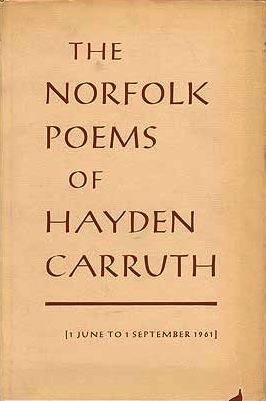
Hayden Carruth Selected Works

Effluences from the Sacred Caves is a collection of essays and reviews by one of America's foremost poets, essayists, and jazz aficionados.
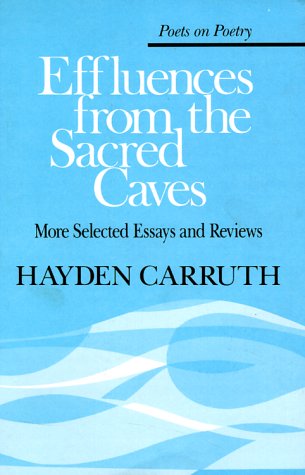
This long-awaited book is the first collected edition of Carruth's work. Edited and introduced by poet Galway Kinnell, it offers thirty-three years of poetry that exhibits the qualities Alastair Reid cited in Saturday Review when Carruth won the Leonore Marshall Poetry Prize for Brothers, I Loved You All: "Richness and variety...burly energy...courage and gusto...His work teems with the struggle to live and to make sense, and his poems carve out a kind of grace for us."
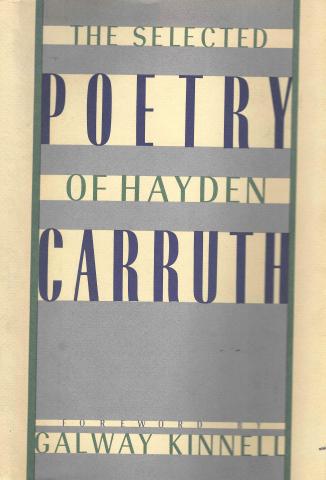
This book collects five long poems that have previously appeared, with one exception, only in magazines and limited editions. One critic has called them "virtually secret." Yet they are probably the heart of Carruth's poetic achievement, both technically and thematically. Rising from the experiene of emotional illness and the asylum, the poems move at intervals and over a period of nearly fifteen years toward a sustained, workable view of humanity in crisis. "I have tried to create," Carruth writes, "specifically a seeing, living, surmounting person. Modesty is important, and so are winter and the north. A man alone in the snow is still much in this world, including the social world, though his 'in-ness' is naturally a form of rebellion." The poems included are "The Asylum," Journey to a Known Place," "North Winter," "Contra Mortem," and "My Father's Face."
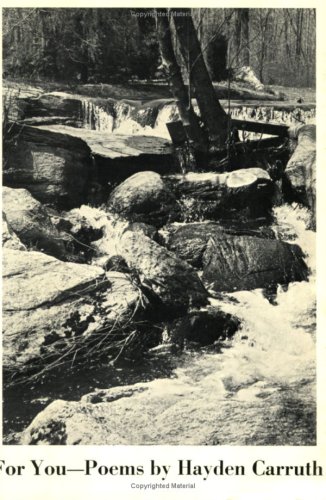
Hayden Carruth's epic meditation on the nature of Romance draws on the tradition born with the 13th century troubadours, examining that tradition through an enlightened perspective. Praising the initial publication in 1982, Carolyn Kizer wrote, "For twenty years Hayden Carruth has been one of our finest poets, as well as a superb critic of poetry." Now she adds, "The poem is unique in its understanding of the link between love of woman and love of nature. Those two great contemporary issues, recognition of women, and respect for our fragile world, are bound together in profound unity." To this revised edition, the poet has added a new canto and clarified others. Our pre-eminent poet of improvisation within form, Carruth's renowned technical genius explores a fifteen-line, approximate pentameter form of the poet's invention, constantly calling in people connected to the letter H, from Hesiod, Homer and Hesse, to Herr Husband, Householder and Handyman, finding resonance in all our comic tragedies, personal or mythic.

Hayden Carruth's From Snow and Rock, from Chaos—his first book since For You (1970)—contains a selection of his best short poems written between 1965 and 1972. Once again, the setting for many of the pieces is the Green Mountains of Vermont, where the poet and his family have lived for several years.
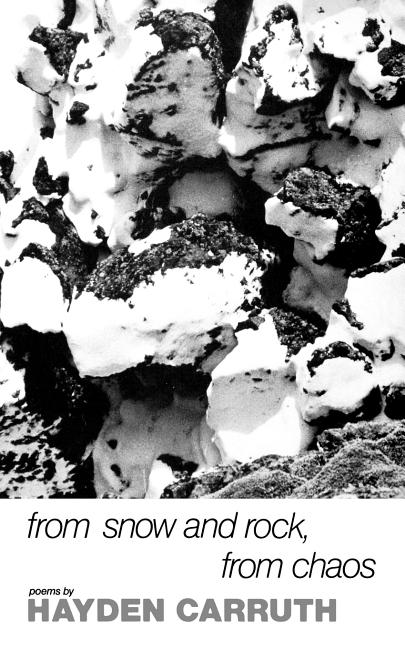

Hayden Carruth's Last Poems is a triumph—a morally engaged, tender, and fearless volume that combines the last poems of his life with the concluding poems from each of his previous volumes. Introduced by Stephen Dobyns, Last Poems is a moving tribute to a towering and beloved figure in American poetry.

This “portable Carruth” gathers new poems with the essential works from a major American poet. Included are lyrics, short narratives, comic, meditative, and erotic poems that engage politics, music, rural poverty, and the cultural responsibility of artists.

The poet Jane Kenyon earned wide acclaim for her clear, vivid, deeply spiritual lyrics, many of them written in the face of her own mortality. During the year of her dying, Hayden Carruth's faithful correspondence, collected here, gives us rare insight into the inner life of a major poet as he confronts the loss of a dear friend. Kind, consoling, passionate, and at times wickedly funny, these letters transcend the personal, offering an extended meditation on age and death, and on the art of poetry.
